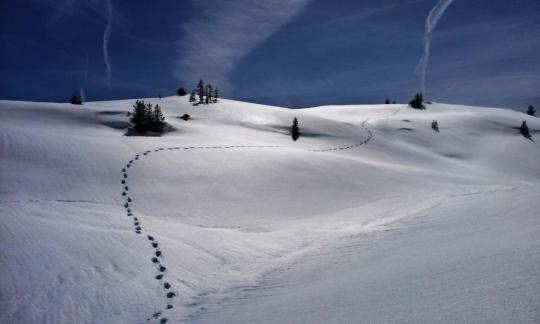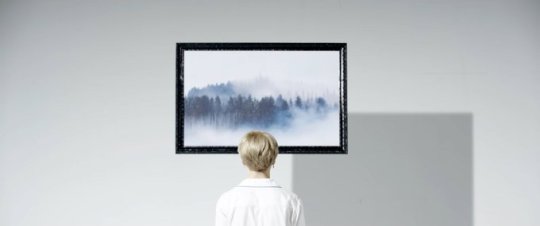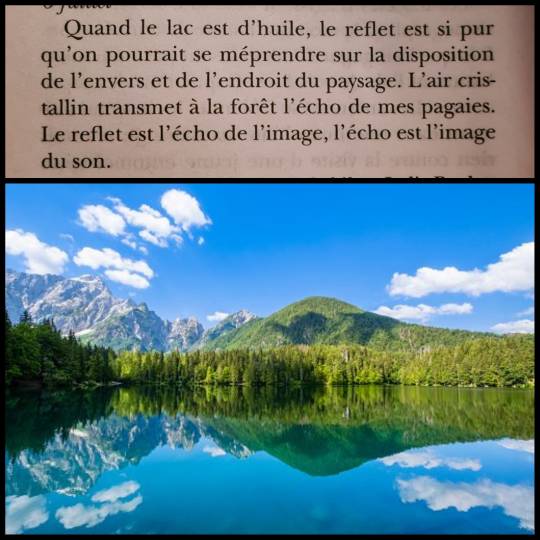#Franz Xaver Kappus
Explore tagged Tumblr posts
Quote
If you will stay close to Nature, to its simplicity, to the small things hardly noticeable, those things can unexpectedly become great and immeasurable.
Letter to Franz Xaver Kappus from Rainer Maria Rilke (16th July 1903).

[ID A photo of some bright yellow Primroses.]
2 notes
·
View notes
Text
Book Thoughts - Dans les fôrets de Sibérie (Consolations of the Forest: Alone in a Cabin in the Middle Taiga) by Sylvain Tesson
It all started with a quote that Namjoon shared on IG, from the book "Dans les forêts de Sibérie" (Consolations of the Forest: Alone in a Cabin in the Middle Taiga) by Sylvain Tesson. I don't know whether he read the book, but since it was on my reading list...

Note before we start: This is going to be a French and English thread. There was no way I would have read this author's work in English! So, if you have any questions, feel free to ask them.
This is an autobiographic story, with a simple pitch: the author decides to fulfill a dream - to live as a hermit for six months in a small wood cabin next to the Baikal lake in Siberia, before he turns 40. The book follows his journey, his introspective experience, as a diary.

This book is a gem! The poetry and the wordplay is beyond beautiful. While I wanted to share many quotes, the translations did not deliver the impression I had in French. An example: "Pointillé des pas sur la neige : la marche couture le tissu blanc."
The translation goes: "Footsteps dot the snow Walking sets short black stiches into the white cloth"
The English version does deliver the global feeling though, but yeah...

The author learns the ways to survive in this remote place, compares his hermit daily life to what he would do in his fast Parisian life, reads a lot (brought TONS of books with him). He gradually sets in a routine, recording and writing down his experience and his thoughts. Days go by slowly. Time does not have the same meaning there.
"Time wields over the skin the power water has over the earth. It digs deep as it passes."

In fact, everything he writes is not only deeply meaningful, but you can visualize his words so easily in your mind.
"Time wields over the skin the power water has over the earth. It digs deep as it passes."
"If nature thinks, landscapes express the ideas... There would be the melancholy of forests, the joy of mountain torrents, the hesitation of bogs, the strict severity of peaks, the aristocratic frivolity of lapping waves."

Another example of this "visual representation" of the author's way of writing:
"When the lake is as slick as oil, the reflection is so pure that you could misread which half of the mirror image was which... The reflection is the echo of the image; the echo is the image of the sound."

Apart from the external part of the daily life, there is also the introspective journey. The author wonders what he will find if he looks inside. That's another reason why he chose to go there, alone.
"The courageous course would be to face things: my life, my times and other people... What am I?"
I don't know whether NJ read that book, or just the quote from somewhere else, but I was surprised to read about another book NJ posted on IG in this book too. But then, as I mentioned previously, the author read a lot during his 6 months...
"Addressing the young poet Franz Xaver Kappus, Rainer Maria Rilke writes in his letter of 17 February 1903: 'If your daily life seems poor, do not blame it, blame yourself that you are not poet enough to call forth its riches"

Speaking about quotes, this is the one Namjoon put on IG, with the original text in French:
"Ecoutant la musique de la houle, je regarde griller mes poissons embrochés sur des pics de bois vert en pensant que la vie ne devrait être que cela : l'hommage rendu par l'adulte à ses rêves d'enfant."
Who else but the author to give you an idea of what he felt and wrote in his book? I found a very short interview on YT with some snippets of the documentary that he did while living there. He speaks English fluently.
youtube
The French documentary on the author's experience, is complementary to the book he wrote. Here goes the English version.
youtube
There is also a 2016 movie called "In the Forests of Siberia" and while it is a great movie, it's not the original story from the book but an adaptation with a new character. The music is hauntingly beautiful and matches perfectly the visuals. Here goes the trailer of the movie:
Do I recommend the book? Yes! I really enjoyed escaping to this hermit life in the first days of the year! If you can, I recommend reading the French version. Maybe watching the short interview will help you understand the mindset of the author too.
2 notes
·
View notes
Text

Rainer Maria Rilke in a 1903 letter to his protégé, Franz Xaver Kappus
1 note
·
View note
Photo







221120 RM’s Instagram Stories
(These photos are of Letter One in Rainer Maria Rilke's 'Letters to a Young Poet'. The English version can be read at the link below, translated by A. S. Kline. https://poetryintranslation.com/PITBR/German/RilkeLetters.php#anchor_Toc58662116 'Letters to a Young Poet' is a collection of 10 letters written by poet Ranier Maria Rilke to Franz Xaver Kappus. Kappus had been seeking advice, deciding between a career in poetry, or as an officer in the army. In this letter, Rilke advises Kappus to look into himself to find his calling as an artist, and that his life may still be "fine, and broad, and full of richness" even if he forgoes the artist's path.)
🔗https://instagram.com/stories/rkive/2975034506328579271 🔗https://instagram.com/stories/rkive/2975038362814775549 🔗https://instagram.com/stories/rkive/2975038477545872076 🔗https://instagram.com/stories/rkive/2975038636107260396 🔗https://instagram.com/stories/rkive/2975038786439680441 🔗https://instagram.com/stories/rkive/2975038945152164275 🔗https://instagram.com/stories/rkive/2975039063087442158


(These photos are of the ending section of Letter Four in Rainer Maria Rilke's 'Letters to a Young Poet'. The English version can be read at the link below, translated by A. S. Kline.
https://poetryintranslation.com/PITBR/German /RilkeLetters.php#anchor_Toc58662119
In this letter, Rilke advises that by enduring and loving solitary, it can help Kappus to find his path that will eventually be a safe haven.)
🔗https://instagram.com/stories/rkive/2975061458842203316 🔗https://instagram.com/stories/rkive/2975064132895580768
#221120#rm#namjoon#instagram#insta#story#rainer maria rilke#Franz Xaver Kappus#lettersto a young poet#book recommendation#bts#bangtan
91 notes
·
View notes
Text
“I believe that almost all our sadnesses are periods of tautening that we experience as numbness because we can no longer hear the stirring of our feelings, which have become foreign to us. Because we are alone with the strange thing that has entered into us; because everything familiar and accustomed is taken away from us for a moment; because we are in the middle of a transition where we cannot stand still. And that is why sadness passes: what is new in us, the thing that has supervened, has entered into our heart, penetrated to its innermost chamber and not lingered even there – it is already in our blood. And we never quite know what it was. One might easily suppose that nothing had happened, but we have altered the way a house alters when a guest enters it. We cannot say who has come, perhaps we shall never know, but there are many indications that it is the future that enters into us like this, in order to be transformed within us, long before it actually occurs. And that is why it is so important to be solitary and attentive when one is sad: because the apparently uneventful and static moment when our future comes upon us is so much closer to life than that other noisy and accidental point when it happens to us as if from the outside. The quieter, the more patient and open we are in our sadness, the deeper and more unerringly the new will penetrate into us, the better we shall acquire it, the more it will be our fate, and when one day in the future it ‘takes place’ (that is, steps out of us towards others) we shall feel related and close to it in our inmost hearts.”
Rainer Maria Rilke in his letter to Franz Xaver Kappus (written from Borgeby gård, Flãdie, Sweden, 12 August 1904), featured in Letters to a Young Poet, translated by Charlie Louth
#rainer maria rilke#rilke#letters to a young poet#Briefe an einen jungen Dichter#franz kappus#franz xaver kappus#self reflection#solitude#sadness#sorrows#quote#letters#book list 2020#shelf space#*
276 notes
·
View notes
Photo

Exposición "Sigurd Lewerentz. 44 fotografías del viaje en Italia"
#arquitectura#arquitectura sueca#exposición#Franz Xaver Kappus#historia#Rainer Maria Rilke#Sigurd Lewerentz#viajar#viaje
2 notes
·
View notes
Audio
Bajo el mismo castaño: Rainer Maria Rilke y Franz Xaver Kappus
Dos estudiantes de la Academia Militar Teresiana de Viena, en momentos diferentes de la vida se sentaron bajo el mismo árbol a pensar en poesía. El escritor Rainer Maria Rilke le escribe cartas a Franz Xaver Kappus dándole consejos para escribir y para la vida. El resultado de estas correspondencias es el libro "Cartas a un joven poeta" sobre cual trata este programa.
“Si su vida cotidiana le parece pobre, no se queje de ella; quéjese de usted mismo”. Rainer Maria Rilke
Para estar al tanto de las novedades de Baúl de Cartas puedes suscribirte y calificarnos en iTunes , Youtube, Spotify, en Google Podcast, Tune In, Stitcher y otras plataformas de audio.
Creado por @saragapi
#podcast#radio#literatura#rainer maria rilke#cartas a un joven poeta#Franz Xaver Kappus#poesía#arbol#viena#bohemia#saragapi#pereira#colombia
1 note
·
View note
Photo

Rainer Maria Rilke (AT, 1875 - 1926)
_
Rilke’s first letter to his 19-year-old correspondent Franz Xaver Kappus, had laid out his core ideas about what it takes to be an artist. Building upon that foundation in the third letter, he echoes his contemporary Franz Kafka’s assertion that “patience is the master key to every situation” and considers the master key to the creative life [art or science]
Letters to a Young Poet, 1929
Rilke on the Lonely Patience of Creative Work - The Marginalian
https://www.themarginalian.org/2018/06/22/rilke-patience-solitude-art/?mc_cid=c1f7816d0e
#Rainer Maria Rilke#Rilke#life#letter#philosophy#reference#Franz Kafka#quotes#blogs#maria popova#Art#books
11 notes
·
View notes
Text

Rainer Maria Rilke, Briefe an einen jungen Dichter, Mit den Briefen von Franz Xaver Kappus, Wallstein (2019)
6 notes
·
View notes
Text
Man muss Geduld haben
Man muss Geduld haben,
gegen das Ungelöste im Herzen,
und versuchen, die Fragen selber
lieb zu haben und wie Bücher,
die in einer sehr fremden Sprache
geschrieben sind.
Rainer Maria Rilke
aus: Brief an einen jungen Dichter (Franz Xaver Kappus)
12 notes
·
View notes
Text
„Sie sind so jung, so vor allem Anfang, und ich möchte Sie, so gut ich es kann, bitten, lieber Herr, Geduld zu haben gegen alles Ungelöste in Ihrem Herzen und zu versuchen, die Fragen selbst liebzuhaben wie verschlossene Stuben und wie Bücher, die in einer sehr fremden Sprache geschrieben sind. Forschen Sie jetzt nicht nach den Antworten, die Ihnen nicht gegeben werden können, weil Sie sie nicht leben könnten. Und es handelt sich darum, alles zu leben. Leben Sie jetzt die Fragen. Vielleicht leben Sie dann allmählich, ohne es zu merken, eines fernen Tages in die Antwort hinein.“
Rainer Maria Rilke an Franz Xaver Kappus in „Briefe an einen jungen Dichter“.
1 note
·
View note
Text
Știri: Ediție a Cafenelei critice la Casa de cultură ”Friedrich Schiller” din București (14 martie 2019)
Știri: Ediție a Cafenelei critice la Casa de cultură ”Friedrich Schiller” din București (14 martie 2019)
A apărut de curând, către sfârşitul anului trecut, traducerea românească a romanului ”Biciul dispreţului. Povestea unui stigmatizat”/”Die Peitsche im Antlitz. Geschichte eines Gezeichneten” de Franz Xaver Kappus (traducere din limba germană de Werner Kremm; prefaţă, tabel cronologic şi ediţie bilingvă îngrijită de William Totok, București, Editura Muzeul Literaturii Române, 2018).Franz Xaver…
View On WordPress
#București#cultură#ficţiune#Franz Xaver Kappus#Friedrich Schiller#literatură#Muzeul Național al Literaturii Române din București#proză#știri
0 notes
Text
CARTAS A UN JOVEN POETA - RAINER MARIA RILKE
CARTAS A UN JOVEN POETA – RAINER MARIA RILKE
Estas Cartas a un Joven Poeta, publicadas más de veinte años después de la muerte de su autor, fueron dirigidas por Rainer Maria Rilke (1875-1926) a Franz Xaver Kappus, entre 1903 y 1906, desde los diversos lugares a donde le condujo su vida itinerante, resultado de acuciantes preocupaciones económicas y de una casi constante dependencia de sucesivos mecenazgos. Escritos en una época en la que…

View On WordPress
#lecturas#lecturas recomendadas#leyendo clasicos#LITERATURA ALEMANA#Literatura universal#RAINER MARIA RILKE#recomendaciones
0 notes
Text

Rainer Maria Rilke in his letter to Franz Xaver Kappus (written from Borgeby gård, Flãdie, Sweden, 12 August 1904), featured in Letters to a Young Poet, translated by Charlie Louth
#rainer maria rilke#rilke#franz kappus#briefe an einen jungen dichter#letters to a young poet#letters#quote#time#future#space#existence#book list 2020#shelf space#*#annotations
263 notes
·
View notes
Text
Solitude
This week, I came across the absorbing writings of Rainer Maria Rilke, in a book titled “Letters To A Young Poet”, which, as the name suggests, is a collection of correspondence between Rilke and an upcoming poet of the time, Franz Xaver Kappus(who published these letters after Rilke’s passing). Thank you to the person who bestowed this book to me, because it has done nothing short of trickling…
View On WordPress
1 note
·
View note
Quote
"Auch zu lieben ist gut: denn Liebe ist schwer. Liebhaben von Mensch zu Mensch: das ist vielleicht das Schwerste, was uns aufgegeben ist, das Äußerste, die letzte Probe und Prüfung, die Arbeit, für die alle andere Arbeit nur Vorbereitung ist."
R.M. Rilke, An Franz Xaver Kappus, Rom, am 14. Mai 1904
0 notes